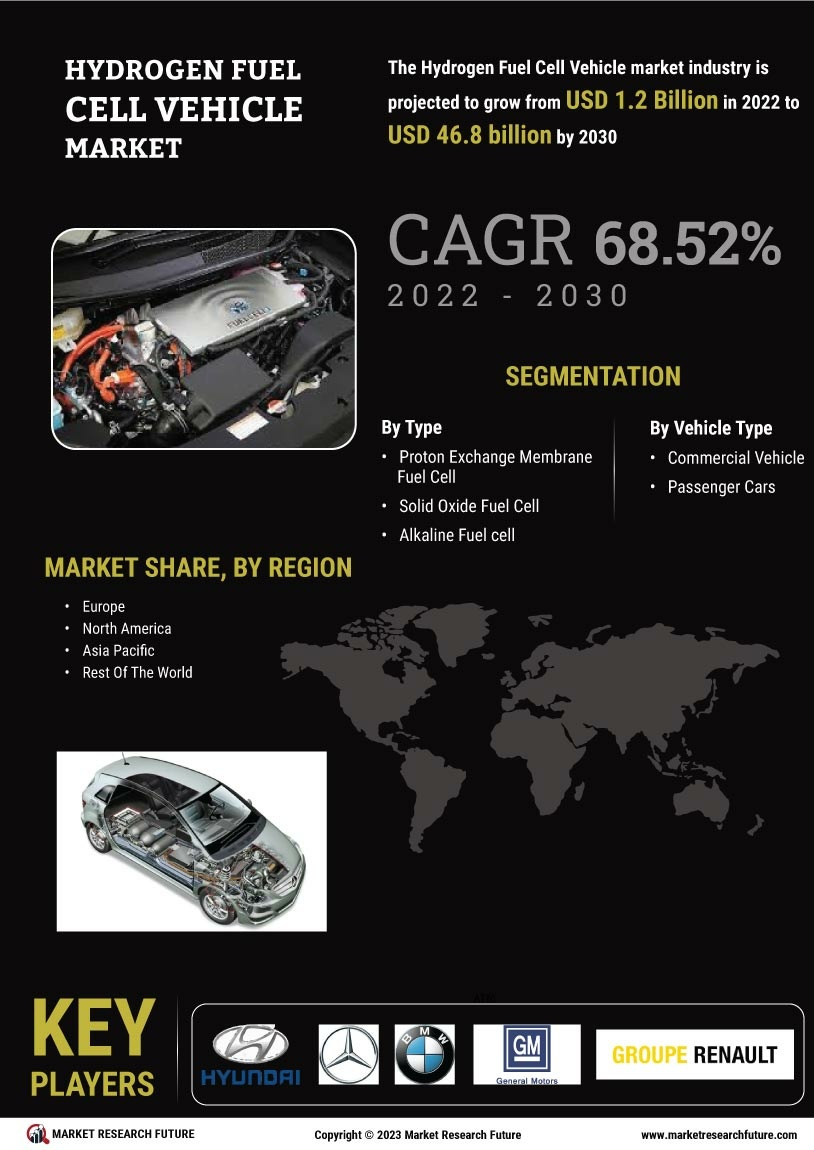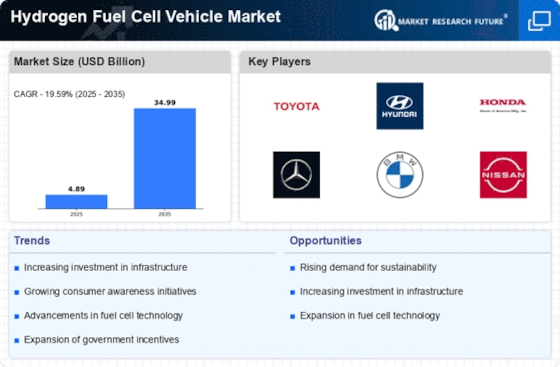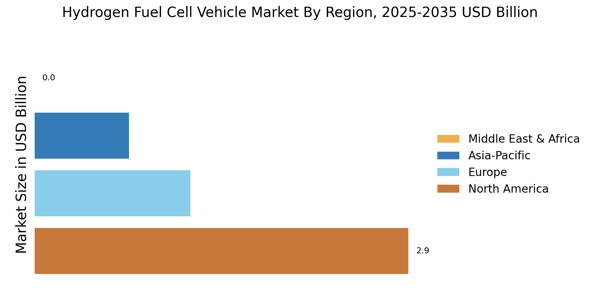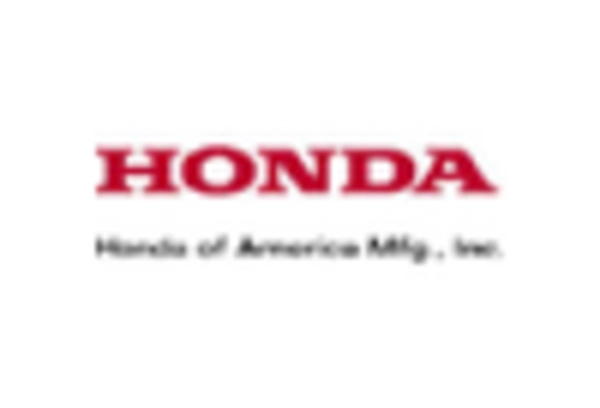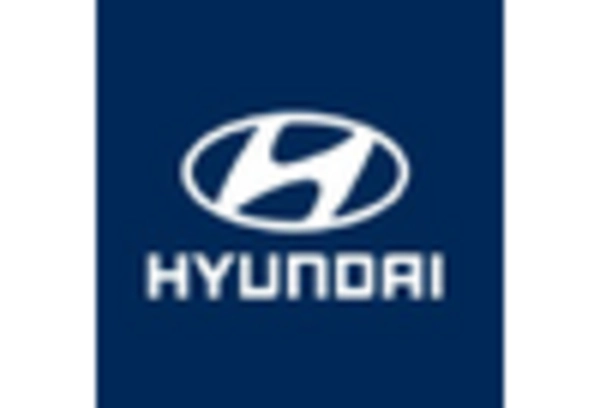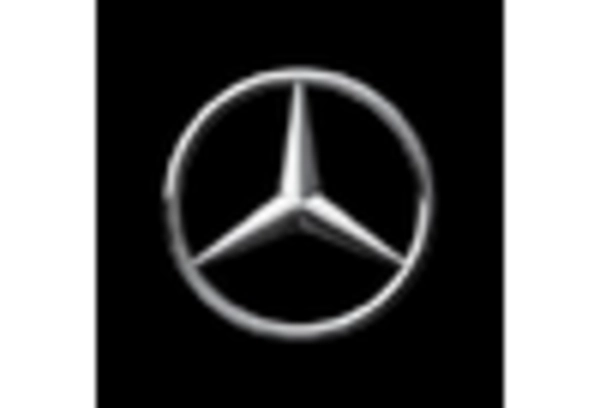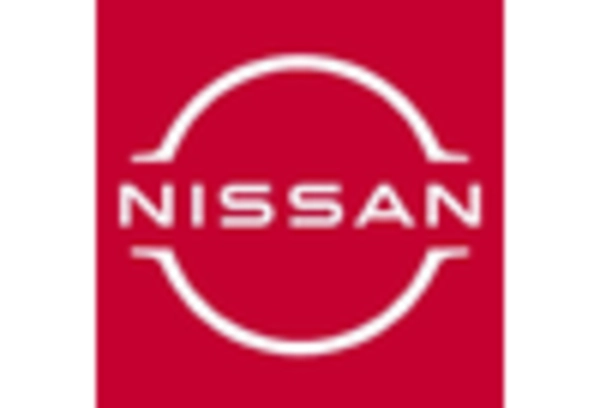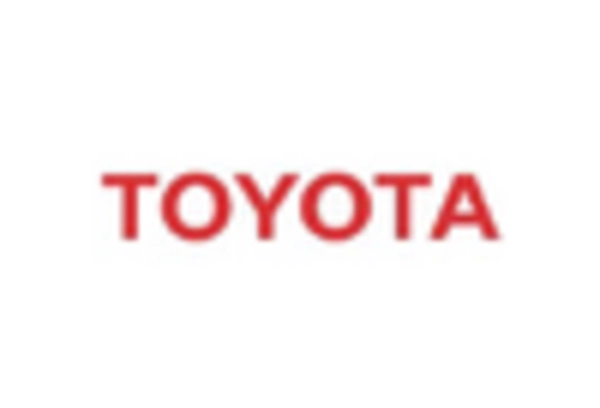Environmental Concerns and Sustainability
The Hydrogen Fuel Cell Vehicle Market is increasingly driven by growing environmental concerns and the need for sustainable transportation solutions. As awareness of climate change and air pollution rises, consumers and governments alike are seeking alternatives to traditional fossil fuel vehicles. Hydrogen fuel cells produce zero emissions at the point of use, making them an attractive option for eco-conscious consumers. In 2025, the demand for hydrogen fuel cell vehicles is projected to increase significantly, with estimates suggesting a market growth rate of over 20% annually. This shift towards cleaner technologies is likely to bolster the hydrogen fuel cell vehicle market, as manufacturers respond to consumer preferences for sustainable options.
Government Incentives and Regulatory Frameworks
Government incentives and supportive regulatory frameworks play a crucial role in shaping the Hydrogen Fuel Cell Vehicle Market. Many countries are implementing policies that promote the adoption of hydrogen fuel cell vehicles through subsidies, tax breaks, and grants for research and development. For example, several nations have set ambitious targets for reducing greenhouse gas emissions, which often include the promotion of hydrogen as a clean fuel alternative. In 2025, it is anticipated that these initiatives will lead to a substantial increase in the number of hydrogen fuel cell vehicles on the road, further stimulating market growth and attracting investment in related infrastructure.
Technological Innovations in Fuel Cell Technology
Technological advancements in fuel cell technology are a pivotal driver for the Hydrogen Fuel Cell Vehicle Market. Innovations such as improved fuel cell efficiency, reduced costs, and enhanced durability are making hydrogen vehicles more competitive with battery electric vehicles. For instance, recent developments have led to fuel cells that can operate effectively at lower temperatures, which could expand their usability in various climates. Furthermore, the integration of advanced materials and manufacturing techniques is expected to lower production costs, potentially increasing market penetration. As these technologies continue to evolve, they may significantly influence consumer adoption rates and overall market dynamics.
Rising Consumer Demand for Alternative Fuel Vehicles
The rising consumer demand for alternative fuel vehicles is a key driver for the Hydrogen Fuel Cell Vehicle Market. As consumers become more aware of the environmental impact of traditional vehicles, there is a growing interest in cleaner alternatives. Surveys indicate that a significant percentage of consumers are willing to consider hydrogen fuel cell vehicles, particularly in regions where infrastructure is being developed. This trend is expected to continue, with market analysts predicting that by 2025, hydrogen fuel cell vehicles could capture a notable share of the overall automotive market. This shift in consumer preferences is likely to encourage manufacturers to expand their hydrogen vehicle offerings, further stimulating market growth.
Infrastructure Development for Hydrogen Refueling Stations
The expansion of infrastructure for hydrogen refueling stations is a significant driver for the Hydrogen Fuel Cell Vehicle Market. As the number of hydrogen fuel cell vehicles increases, the need for a robust refueling network becomes paramount. Investments in hydrogen infrastructure are being made by both public and private sectors, with projections indicating that the number of refueling stations could double by 2026. This development is likely to alleviate range anxiety among potential consumers, making hydrogen vehicles a more viable option. Enhanced infrastructure not only supports existing hydrogen fuel cell vehicles but also encourages manufacturers to invest in new models, thereby fostering market growth.
